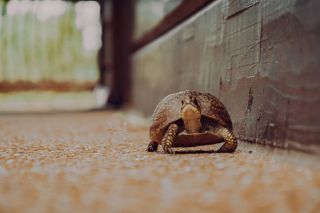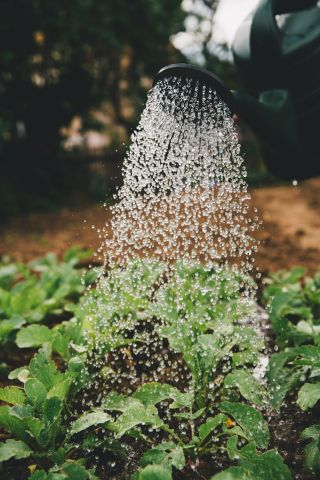Time Management
Stop Getting Stuck in the Weeds of Your To Do Lists
How to become more present and cultivate the important areas of your life.
Posted April 8, 2024 Reviewed by Monica Vilhauer
Key points
- Stress and overwhelm are often a result of doing too many things, feeling rushed, and lacking a clear purpose.
- Practicing mindfulness will help you make more deliberate choices with your time and attention.
- Slowing down and becoming more attuned to your body will help you experience a greater feeling of presence.
“If you asked me what I did today, I honestly don’t think I could tell you. I feel like my days just pass by me. It scares me how little I can remember about what happens in a given day or week.”
My client followed up that doing a series of things on a task list and accomplishing goals related to work and household projects weren’t giving her a deeper sense of fulfillment. She didn’t feel very present in her own life and this felt disconcerting. Simply “getting through” life wasn’t working for her.
We spend a lot of time rushing around and “getting through” our days. We fixate more on getting things done than actually experiencing our lives. Maybe you too have trouble recalling what you did, how you felt at certain moments, much less what you took away from experiences. This lack of remembering and noticing important aspects of our lives is the result of being so in the weeds of tasks and obligations. It’s time we step back and get a larger view of the garden of our lives.
Some of the benefits of being more present include:
- Feeling less stressed
- Having more control over your day
- Experiencing more gratitude for what exists
- Clearer decision-making
- Stronger connections to people and your environment
I will discuss the importance of cultivating our lives and some skills to practice to enact this in your own life.
The Important Difference Between Cultivating Versus Managing Your Life
To “cultivate” means to grow, prepare, and care for something. I often think of cultivating in the context of gardening. In a garden, you grow a selection of crops like flowers, herbs, and vegetables. You hope that by taking good care of these — cultivating them — you’ll reap the benefits of beautiful, nourishing, and fulfilling things. Important life domains are like those crops we want to cultivate and reap the fruits of in our lives. Examples include family, career, health, personal growth, and creativity.
Part of gardening also means managing and maintaining your garden. One aspect is getting rid of weeds on a timely basis, or otherwise risking the actual growth of your crops. Your to-do lists are like the weeds you attend to in order to maintain progress on your important life domains. But if you spend too much time focusing just on managing the outgrowth of weeds, your crops won’t survive. When crops aren’t cultivated through other important actions like watering and adding healthy soil, they don’t stand a chance.
This differentiation between managing (autopilot, getting through) versus cultivating (really living and growing) is important. While maintenance and management tasks are certainly necessary, those shouldn't be the bulk of how we spend our time. Getting overwhelmed by seemingly never-ending to-do lists and feeling behind is a clear sign you’re stuck in the weeds. Cultivating joy, memories, and connection is essential to our well-being too.
Cultivating and growing domains of your life requires certain skills and practices. These include being focused, paying close attention, and being more attuned to your body. In order to do these things, one important precursor is to slow down.
The Skills of Cultivating Greater Presence in Your Day

1. Slow Down
Literally, slow down the way you’re going about your day. There may be periods when you don’t have the option to slow down, but there are certainly times you can. The act of doing things more deliberately and in a less rushed, frantic state will keep you centered in the present moment. You will be able to notice more details about what’s going on at any given moment.
Other benefits of slowing down include making intentional decisions, having more gratitude and appreciation for what happens, and feeling a greater sense of agency over how you’re going about your life. You can feel less beholden to a tyrannical schedule and more in control of how things are going in your day-to-day.
2. Be Focused: Do Less
It can feel hard to appreciate what’s going on in your life when you’re swamped with tasks and feeling overwhelmed. Chronically feeling like you’re behind, stressed out, and anxious about what’s to come is a sign that you’re doing too much. Our culture tends to emphasize speed and quantity. It’s important we pivot more towards intentionality and quality. We can still move at a reasonable pace while getting quality things done and having quality experiences. This means we need to be more realistic about how much we’re going to do at a given time.
Try This: Look at the list of things you’ve set out to do today and challenge yourself to take at least half of those items off. Even if you have “just three,” yes, you can afford to take away at least one of those items. A buffer of time to get things done at a more reasonable pace will help you feel less stressed about time. It will also allow you to do things more carefully, leading to better results.
How do you choose which fewer items to do? Consider what is most time sensitive and most valuable. Let these criteria guide your decisions as to what is essential.
3. Pay Close Attention
Paying close attention means actively engaging in the present moment with what is going on. This is essentially the practice of mindfulness which focuses on the present moment, accepting what is, and being non-judgmental. Mindfulness in itself is the gateway to presence in your own body and mind.
One of the most effective ways to practice mindfulness is by getting in tune with your body. We spend a lot of time in our minds. We judge, assess risks, and plan. You can use our body’s amazing capabilities to regulate your emotions, take in your surroundings, and ground yourself in the present moment.
Try This: Decrease stress and anxiety by doing activities like walking, breathing, stretching, and placing gentle pressure on certain parts of your body. All of these activities can activate the parasympathetic nervous system which is the “rest and digest” part of your nervous system that helps calm you down.
Write down some activities you already enjoy or could try that will get you out of your head and more into your body. What is something you want to do more of in the coming weeks?

What Are You Cultivating?
Where have you noticed yourself getting stuck in the weeds? Are you spending so much time just trying to get through task lists that it’s taking away from your ability to live into your life?
- List the domains of your life you want to cultivate
- List the “weeds” that are getting in the way of you cultivating those domains
- Think about what actions you can take to get out of the weeds (delegating, doing less, taking things off your plate altogether, resting)
Having a clearer picture of what it is you’re growing and why will help you get unstuck from the pattern of being overwhelmed and stuck in the weeds of to-do lists and days spent “getting through.” You can take these steps towards cultivating a life you can actually be present for and getting to enjoy the little to big moments that grow out of what you cultivate.




